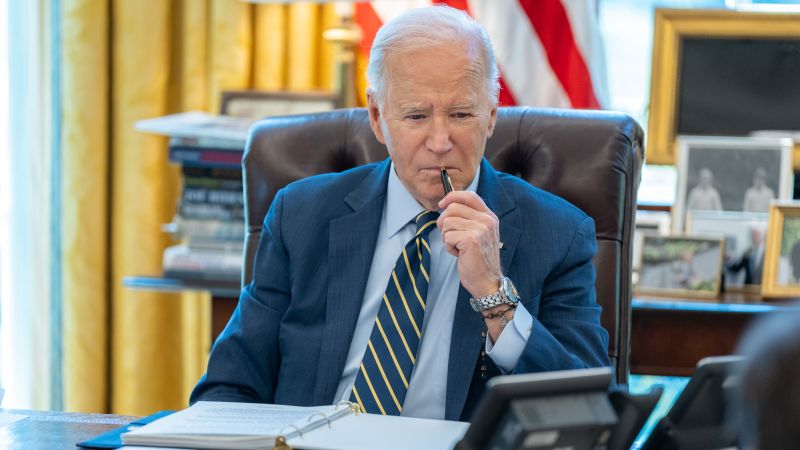President Joe Biden ticked through several things that he needed to see Israeli Prime Minister Benjamin Netanyahu do immediately: open up the Erez crossing into northern Gaza and the port of Ashdod in southern Israel for humanitarian aid; significantly ramp up the supplies getting in through Kerem Shalom.
A person familiar with the Thursday call paraphrased Netanyahu as responding: “Joe, we’re gonna do it.”
But Biden wasn’t finished. The prime minister must announce the moves that evening, the president insisted.
By Thursday night, the Israeli security cabinet had approved those three measures to increase humanitarian aid entering the besieged enclave.
The relatively brief phone call between the two leaders this week marked the first time since Hamas’ attack on Israel in October that Biden threatened Netanyahu with serious consequences if Israel did not change the way it was waging its war in Gaza. Biden, who has remained steadfast in his support of Israel’s right to defend itself — even amid growing political backlash at home — warned the prime minister that if conditions did not rapidly improve for civilians in the strip, he would reconsider how the US was backing Israel in the conflict.
The prime minister’s office declined to comment on the exchange. The White House declined to comment for this story.
In both the official White House readout of the Biden-Netanyahu phone call and public statements following the call, US officials have declined to specify exactly what US policy changes are under consideration.
Slowing down the US’ supply of weapons to Israel would be the most likely policy change, one senior administration official told CNN, pointing to a recently released national security memo that lays out standards foreign…
Read the full article here

Leave a Reply